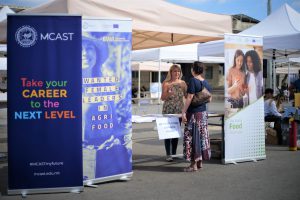According to the EIT Food Trust Report 2021 (1) and the Special Eurobarometer Survey – April 2019 on Food safety in the EU (2), food safety is one of the most important factors when consumers buy food. However, there is the lack of trust in government authorities on food production. Although authorities address these issues with several measures and campaigns, the consumer trust in food systems, in particular to locally produced foods has not been improved as there are still knowledge gaps within the society. There has been not any dedicated forums or platforms where citizens can learn about food safety in a scientific but understandable format, experience/interact with food producers/farmers as well as an understanding of how the monitoring performed by government agencies and on how to raise their concerns on food safety to the relevant authorities. Therefore, the motivation of the solution is to increase consumer trust in food with a special focus on the locally produced food.

The Malta Food Citizen Lab project helps provide solutions to the problem. MCAST in collaboration with the Malta Food Agency introduced the Food Trust Ambassadors program through which participants will be trained on local food safety and supply systems. Food Trust Ambassadors will have access to promotional materials and guidance to use online tools to disseminate and promote food trust among their communities.
The project kick-off event has taken place on World Food Day, 16 October at the Maltese Food Festival in Pitkalija and will be followed up with core training in November and a final event in December 2022. The training will be facilitated into 2 online webinars (1 hour each) and a one-day face-to-face training delivered by scientists and local authorities. The 5 training topics of the program are 1. Introduction on plants growing, overview of pets and diseases and control methods used. 2. Overview of Malta produces (fish, vegetables, animal products, seasonality). 3. Methods and system use to reduce pesticide use. 4. Antibiotics in animal products. 5. Food safety act: Food chain in Malta and regulations on safe food. Communication skill training will also be provided to equip Food Trust Ambassadors essential tools to promote food trust in their communities.

Anyone who cares about food and wants to become a Food trust Ambassador is welcome to join this free-of-charge program. Registration is open until 30 October and you can apply via this link.
Along with the project, a survey to raise more awareness and disseminate more information on the subject of Perceptions of general public and consumers on pesticide residues in fruits and vegetables has been released.
English version: https://forms.office.com/r/y5npaeUuum
Maltese version: https://forms.office.com/r/R8nLS3Pygq
For more information, please contact Uyen Vu, via this email address: uyen.vu.thi.phuong@mcast.edu.mt






 MCAST Main Campus
MCAST Main Campus  +356 2398 7100
+356 2398 7100
 information@mcast.edu.mt
information@mcast.edu.mt